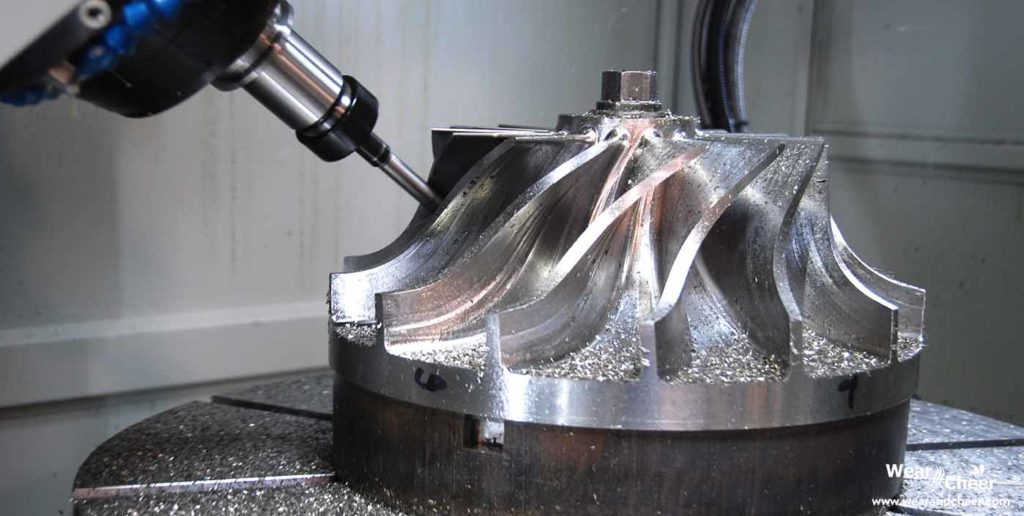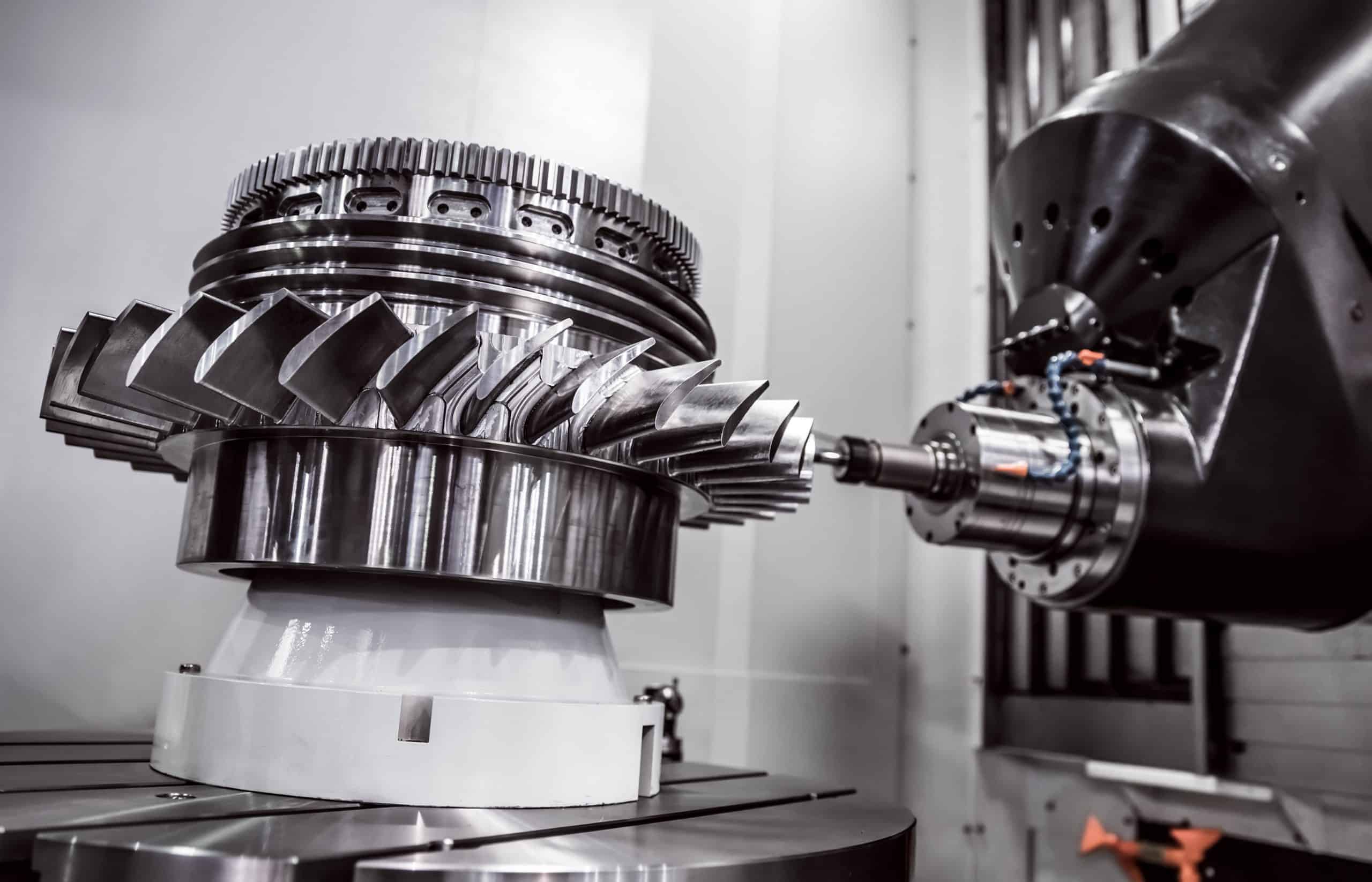Elevate Your Manufacturing High Quality With Professional CNC Machining Services in Milling and Turning
CNC machining solutions in milling and transforming offer significant advantages for producing operations. These processes ensure accuracy and effectiveness, essential for producing high-quality elements. With sophisticated modern technology and knowledgeable machinists, businesses can achieve superior finishes and intricate layouts. However, recognizing the subtleties of these services is essential for maximizing their benefits. What aspects should companies take into consideration when selecting the best CNC machining companion?
Comprehending CNC Machining and Its Advantages
Lots of making procedures exist, CNC machining stands out due to its accuracy and performance. This advanced production method makes use of computer-controlled makers to generate complex get rid of marginal human treatment. By automating the machining process, it substantially minimizes the probability of human mistake, ensuring constant top quality throughout production runs
CNC machining provides various advantages that attract different markets. To start with, it fits complicated designs that conventional methods may have a hard time to achieve. Moreover, the rate of production is boosted, permitting quicker turn-around times and enhanced result. In addition, CNC machining is flexible, ideal for a vast array of materials, including plastics, compounds, and steels.
The process allows for simple changes, enabling rapid prototyping and modification without considerable retooling. Therefore, companies can react quickly to market needs, making CNC machining an important part of contemporary production strategies.

The Relevance of Accuracy in Milling Processes
Precision is important in milling procedures, as it directly affects the precision of the end product. The option of products also plays a substantial duty, influencing just how well the machining procedure meets specified tolerance standards. Understanding these elements is vital for achieving excellent cause CNC machining.
Role of Precision
Achieving high degrees of precision is important in grating processes, as even the smallest deviation can result in significant mistakes in the final product. Accuracy in CNC machining straight affects the efficiency, capability, and durability of the made components. Exact milling assurances that resistances and dimensions are satisfied, which is vital for parts that need to fit together seamlessly in setting up or operate under particular conditions. Additionally, the role of precision extends to lowering waste and rework, therefore improving general manufacturing effectiveness. Advanced CNC makers geared up with advanced software and tooling contribute to attaining the necessary accuracy. By prioritizing precision in milling, makers can assure top notch outcomes that meet strict sector criteria and customer assumptions.

Material Selection Effect
Product selection plays an important role in the milling process, influencing both the high quality of the end product and the performance of production. Different materials exhibit unique buildings such as hardness, tensile stamina, and machinability, which straight affect the milling strategy employed. For instance, harder products may require specific devices and slower feed prices to protect against tool wear and maintain accuracy. On the other hand, softer materials can be milled at higher speeds but might do not have longevity. Additionally, the choice of product can impact surface area coating and dimensional accuracy, requiring mindful factor to consider by producers. Inevitably, selecting the proper product not only enhances item performance but also enhances the milling procedure, decreasing waste and enhancing total efficiency.
Resistance Specifications Importance
While the option of materials is necessary, adherence to tolerance criteria is similarly important in CNC machining procedures. Resistance requirements dictate the acceptable limitations of variant in dimensions, ensuring components fit and function appropriately. In milling and transforming procedures, specific resistances enhance item top quality, reduce waste, and minimize rework. When tolerances are precisely kept, makers can achieve consistent results, which is crucial for sectors such as aerospace, automotive, and clinical gadgets, where accuracy is extremely important. Variances from established criteria can cause setting up concerns, compromised performance, and boosted costs. As a result, understanding and implementing proper tolerance requirements is basic for any CNC machining solution seeking to keep high production quality and fulfill customer specifications properly.
Enhancing Performance Through Advanced CNC Transforming
Advanced CNC turning methods substantially enhance performance in element production by guaranteeing high accuracy in manufacturing. This raised precision not just boosts the overall high quality of the parts generated yet also adds to lowered production time. Consequently, suppliers can accomplish greater output while maintaining stringent quality standards.
Accuracy in Element Creation
CNC turning innovation has reinvented precision in component creation, enabling manufacturers to accomplish phenomenal precision and performance. Utilizing computer-controlled turrets, this innovative process carefully forms products right into detailed styles, making certain tight tolerances that satisfy demanding specifications. The automation intrinsic in CNC turning reduces human error, leading to continually high-quality parts customized to certain requirements. In enhancement, the ability to quickly modify digital layouts permits quick versions, boosting the personalization of components without compromising accuracy. As an outcome, industries varying from aerospace to vehicle benefit significantly from these improvements, as they can create complicated geometries easily. Eventually, CNC transforming stands as a cornerstone of modern production, driving precision and dependability in element creation.
Decreased Production Time

Key Technologies in CNC Machining
Various key innovations drive the effectiveness and accuracy of CNC machining, making it possible for manufacturers to produce complicated parts with high precision. Central to these advancements are Computer Helped Layout (CAD) and Computer Aided Production (WEB CAM) software, which improve the design-to-production procedure. CAD enables complex designs to be created and controlled digitally, while CAM equates these styles into device directions.
Even more improving accuracy are multi-axis machining centers, which make it possible for reducing tools to move along multiple axes concurrently, reducing the need for multiple setups - fast prototyping. In addition, innovations in tooling products and layers have improved resilience and efficiency, enabling much better surface finishes and expanded device life
Automation technologies, consisting of robotics and intelligent software program, promote real-time monitoring and changes during production, guaranteeing consistency and high quality. Collectively, these technologies not just enhance production abilities but also add to the general integrity of CNC machining services.
The Duty of Proficient Machinists in Top Quality Production
Knowledgeable machinists play a vital duty in ensuring the top quality and precision of CNC machining production. Their know-how straight impacts the result of making procedures, as they analyze technical drawings, set up machines, and select proper tools for each project. check it out By possessing a deep understanding of machining principles, they can make real-time modifications to optimize efficiency and preserve tight tolerances.
Additionally, competent machinists utilize their problem-solving abilities to determine and fix issues throughout production, guaranteeing and preventing problems that the end products fulfill rigorous high quality standards. Their knowledge with numerous products and machining strategies allows them to adjust to varied task demands, boosting general performance
In enhancement, these experts commonly collaborate with designers and engineers, supplying important understandings that add to the continual improvement of production techniques. Inevitably, the value of competent machinists in CNC machining can not be overemphasized, as they form the foundation of premium manufacturing procedures.
Decreasing Waste and Optimizing Resources
Efficient CNC machining not only counts on the experience of competent machinists but likewise stresses the importance of lowering waste and maximizing sources throughout the production procedure. By employing advanced innovations and precise programming, manufacturers can minimize product waste, making certain that every item of raw material is made use of effectively.
Integrating methods such as nesting, where parts are organized to make the most of product use, can especially lower scrap production. Furthermore, real-time monitoring of equipment performance permits immediate adjustments, avoiding overflow and source exhaustion.
Executing sustainable methods, such as reusing steel shavings and making use of eco-friendly products, contributes to both expense savings and ecological duty.
Through these actions, CNC machining solutions can boost productivity while maintaining top notch requirements, ultimately bring about a more lucrative and lasting procedure. By prioritizing source optimization, services can accomplish better performance and a reduced environmental impact in their production procedures.
Picking the Right CNC Machining Solution for Your Demands
Exactly how does one figure out the very best CNC machining service for specific job requirements? Selecting the appropriate CNC machining solution involves a number of critical factors to consider. First, job requirements, including material measurements, resistances, and kinds, have to be clearly defined. This assures that the selected service can fulfill the technical demands of the job.
Second, assessing the service provider's competence and experience in the relevant sector can give understandings into their abilities. Examining previous tasks and customer testimonials can additionally educate the choice.
Third, examining the offered innovation and equipment is crucial, as advanced equipment often causes greater precision and performance.
Expense and turnaround time must be taken into consideration to assure the service aligns with monetary restraints and deadlines. By carefully examining these variables, companies can recognize the CNC machining solution that best fits their distinct manufacturing requirements.
Regularly Asked Inquiries
What Materials Can Be Utilized in CNC Machining?
CNC machining can make use of a range of products consisting of steels like steel, aluminum, and titanium, along with plastics such as acrylic and nylon, and composites, supplying versatility for different production applications and industries.
How much time Does a Common CNC Machining Task Take?
A common CNC machining task can take anywhere from a few days to a number of weeks, relying on variables such as complexity, material kind, layout requirements, and manufacturing quantity. Timelines vary based upon job demands and urgency.
Are CNC Machining Solutions Eco-friendly?
CNC machining services can be eco-friendly, particularly when making use of sustainable products and efficient processes. Waste reduction and energy-efficient machinery add to a reduced environmental impact, making these services a sensible option for eco-conscious manufacturing.
What Industries Generally Utilize CNC Machining Providers?
CNC machining solutions are frequently utilized in different markets, consisting of automobile, aerospace, electronic devices, clinical gadgets, and production. These markets count on accuracy machining for components that need high precision, efficiency, and repeatability in manufacturing procedures.
Exactly How Can I Prepare My Layouts for CNC Machining?
To prepare designs for CNC machining, one should guarantee appropriate documents styles, maximize dimensions for resistance, integrate required machining attributes, and take into consideration product residential or commercial properties. In addition, providing comprehensive paperwork can improve the manufacturing process's performance and accuracy.
While the choice of materials is necessary, adherence to more info here resistance requirements is similarly crucial about his in CNC machining processes. Skilled machinists play a crucial role in making certain the top quality and precision of CNC machining production. A regular CNC machining project can take anywhere from a couple of days to a number of weeks, depending on aspects such as complexity, material type, style requirements, and manufacturing quantity. CNC machining solutions can be eco pleasant, specifically when making use of efficient procedures and sustainable materials. To prepare layouts for CNC machining, one should assure correct data styles, maximize dimensions for tolerance, include essential machining features, and think about material properties.